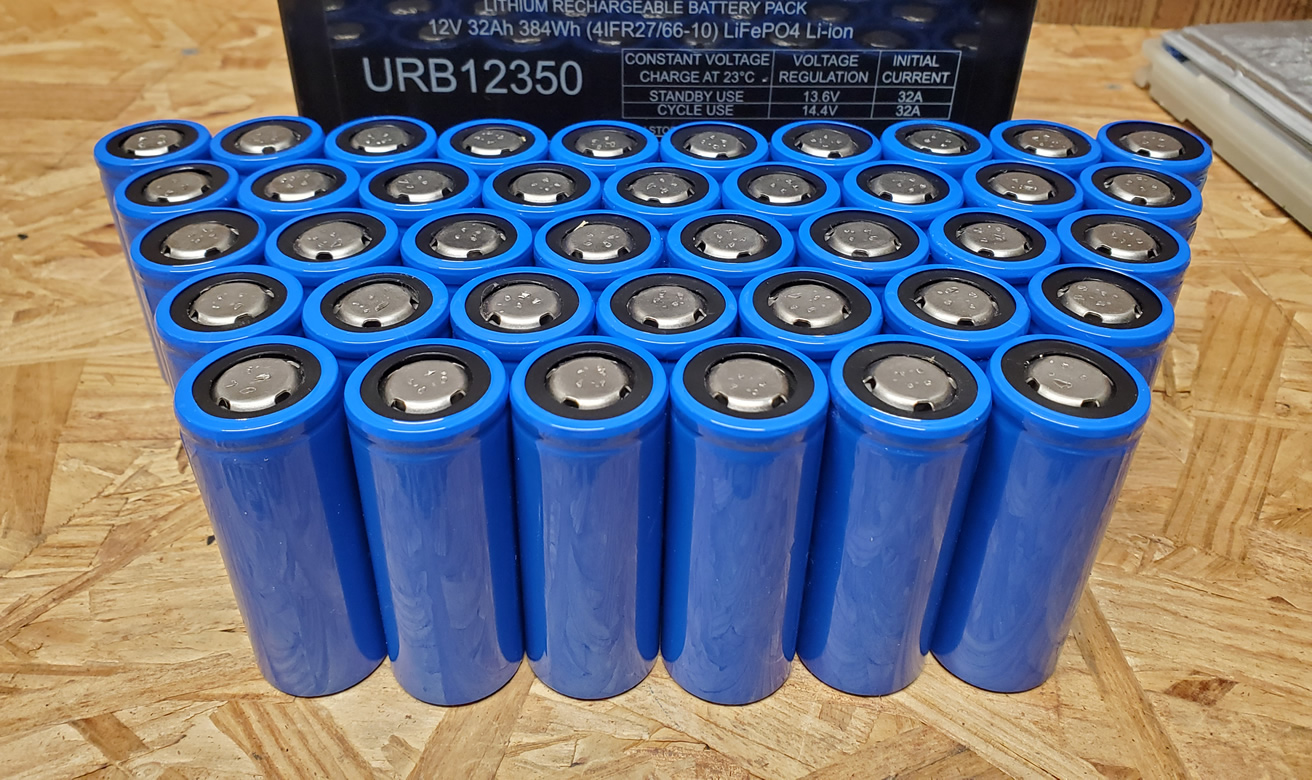- Joined
- Jul 18, 2011
- Messages
- 17,700
Greetings,
My boat (Cruisers Yacht 338) has 7 (seven) 31M-AGM batteries, which spec at 72 lbs. each. The batteries are isolated into 4 banks (4 for the inverter, 1 house, port engine, starboard engine). The boat is now 7 years old and I expect to be replacing batteries over the next few years. The boat also has a weight problem (well not really, but it is more heavy than it would like and as such is a bit thirsty).
A fellow boating buddy with the same boat has recently swapped out the heavy AGM batteries for the new-fangled LiFePO batteries to reduce the weight. I believe he used DC/DC converters to regulate the current draw from the alternators and shore power chargers.
My understanding is that the LiFePO batteries are much safer than the Lithium-ion batteries that like to catch on fire (aka thermal runway).
I have not seen much on boating forums about the LiFePO batteries, so wondering if folks here have some insight into the viability of using these instead of traditional batteries?
I figure if I replaced all 4 banks with liFePO batteries, I'd only need 5 batteries, instead of 7, since you can draw the LiFePO batteries down much more than AGM batteries. So, the inverter bank would only have 2 batteries instead of 4. (all the batteries are currently 100Ah rated)
Cost wise . . .
The 31M-AGM (Interstate) price out at about $400 each = $2,800
The LiFePO batteries are about $700 each, depending on brand/Ah rating. So, call it $3,500
Weight savings :
AGM
7 x 72 = 504 lbs.
LiFePo
5 x 28 = 140 lbs.
Saving about 364 lbs +/-
If I wanted to reduce weight even more, I could possibly go with 4 LiFePO instead of 5, which would bring the costs in line and bring the weight savings up to almost 400 lbs.
Thoughts on the LiFePO batteries and use in a boat/vehicle, etc.?
TIA for your comments
My boat (Cruisers Yacht 338) has 7 (seven) 31M-AGM batteries, which spec at 72 lbs. each. The batteries are isolated into 4 banks (4 for the inverter, 1 house, port engine, starboard engine). The boat is now 7 years old and I expect to be replacing batteries over the next few years. The boat also has a weight problem (well not really, but it is more heavy than it would like and as such is a bit thirsty).
A fellow boating buddy with the same boat has recently swapped out the heavy AGM batteries for the new-fangled LiFePO batteries to reduce the weight. I believe he used DC/DC converters to regulate the current draw from the alternators and shore power chargers.
My understanding is that the LiFePO batteries are much safer than the Lithium-ion batteries that like to catch on fire (aka thermal runway).
I have not seen much on boating forums about the LiFePO batteries, so wondering if folks here have some insight into the viability of using these instead of traditional batteries?
I figure if I replaced all 4 banks with liFePO batteries, I'd only need 5 batteries, instead of 7, since you can draw the LiFePO batteries down much more than AGM batteries. So, the inverter bank would only have 2 batteries instead of 4. (all the batteries are currently 100Ah rated)
Cost wise . . .
The 31M-AGM (Interstate) price out at about $400 each = $2,800
The LiFePO batteries are about $700 each, depending on brand/Ah rating. So, call it $3,500
Weight savings :
AGM
7 x 72 = 504 lbs.
LiFePo
5 x 28 = 140 lbs.
Saving about 364 lbs +/-
If I wanted to reduce weight even more, I could possibly go with 4 LiFePO instead of 5, which would bring the costs in line and bring the weight savings up to almost 400 lbs.
Thoughts on the LiFePO batteries and use in a boat/vehicle, etc.?
TIA for your comments
Last edited:
























